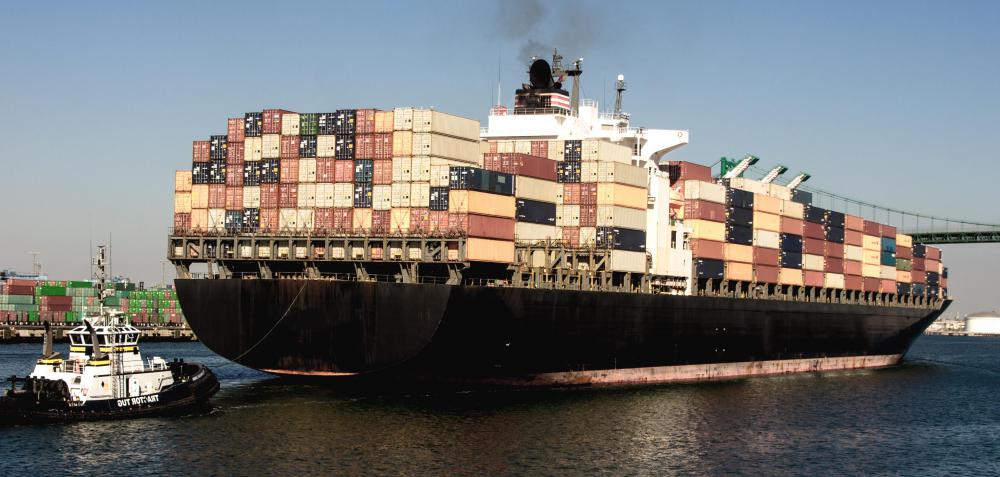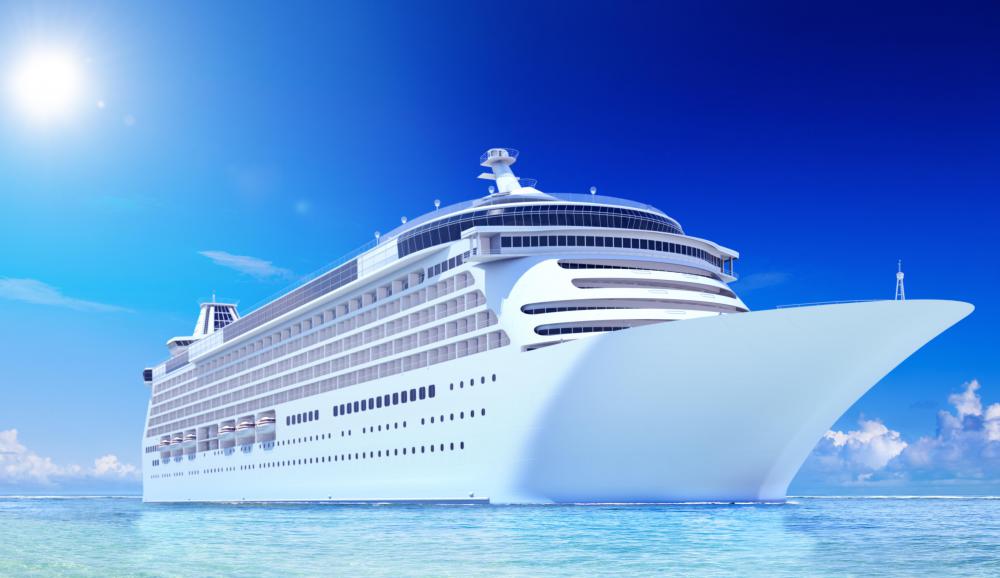At SmartCapitalMind, we're committed to delivering accurate, trustworthy information. Our expert-authored content is rigorously fact-checked and sourced from credible authorities. Discover how we uphold the highest standards in providing you with reliable knowledge.
What is Cabotage?
Cabotage refers generally to the transport of passengers and goods. Originally, it referred specifically to shipping, but cabotage also applies to airlines, trucking, and trains. Many nations have cabotage laws which dictate the terms which carriers must follow when transporting people or materials within their borders. Many of these laws are designed to promote the development of domestic transport companies, and some cabotage laws have been criticized because they can restrict free trade.
The word comes from the French caboter, which means “to sail along a coast.” While the word initially referred to navigation and trade in coastal waters, it has come to refer also to the right of a country to restrict its airspace. Cabotage rights are guaranteed to all nations because a threat to national airspace can threaten national security, and therefore countries need to be able to protect themselves by protecting their airspace. In addition to keeping themselves safer, many nations used cabotage laws to protect their economies and to promote a strong national shipping industry.

Many countries give preference to domestic carriers in the air and in ports. The United States is one such example; airlines operating domestic flights in the United States must be American, although foreign carriers may fly into American airports. In ports, under the Jones Act, domestic cabotage must be carried out by American ships, although foreign carriers are welcome in international ports with trade goods and passengers. Foreign ships which make multiple stops, like cruise ships, may be receive special dispensation so that they do not violate cabotage laws.

As an example of how cabotage works, if you board an plane in Peru which is operated by a Peruvian airline, the plane will be allowed to fly you to any international airport in the United States. If the plane lands in Chicago but continues on to New York, you can choose to disembark in either city. However, the plane may not take on new passengers in Chicago, because this would violate cabotage laws by transporting passengers domestically within the United States.

In terms of shipping, cabotage laws are very important. The Jones Act is credited as being the driving force behind America's Merchant Marine, which numbers in hundreds of ships and thousands of skilled sailors. By restricting domestic cabotage to American-flagged ships, the United States government ensured that American carriers would enjoy a wide range of privileges which some foreign companies believe to be unfair. The justification for these cabotage laws is that the Merchant Marines benefit the United States by ensuring that the country has a large fleet of ships when it needs it, and the Merchant Marine would not be possible without the assurance of cabotage restrictions.
AS FEATURED ON:
AS FEATURED ON:














Discussion Comments
Nigeria also has cabotage laws concerning shipping - "The Coastal and Inland Shipping (Cabotage) 2003 Act No. 51".
However, we've had challenges implement the provisions of this law for various reasons - including lack of political will, under development of our indigenous shipping sector, poor enforcement of the provisions of the act by the enforcement agencies, etc.
The Indigenous Shipowners Association of Nigeria (ISAN) led by Chief Isaac Jolapamo has, however, been relentless in seeing to it the provision of the Cabotage act are adequately adhered to. --Kenneth C.
Japanese Cabotage law
I need some help regarding Japanese Cabotage law. I was on a cruise ship sailing around Japan, joining the tour in Kyoto. The ship sails to Korea for one day and then resumes sailing around Japan. At Nagasaki, I was told that I could not sail to Korea with the ship, because I had a *single* entry visa for my Japan visit, although the visa was good for 3 months. I was then told to get off the ship at Nagasaki on Thursday. The ship would then sail to Korea that night and return to Moji Port in Japan on Saturday morning. All I had to do was stay in Japan, make my way to Moji Port and rejoin the ship there. I was quite happy to do this.
However, the ship's Captain later informed me that due to Japanese Cabotage laws, I could not even rejoin the ship in Moji Port, because I was deemed to have left the ship in Nagasaki. I was then told to leave the ship and was left on my own in Nagasaki. I had only enjoyed 5 days of a 14 day cruise.
Can someone please help me as to whether all that happened above was correct?
Post your comments